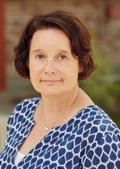Therapy 101 - session notes: librarians and publishers

Liz Allen describes the work of a new initiative: Better Information. Better Decisions
The relationship between scholarly librarians and publishers started out as the most memorable ones often do - an intense initial connection leading to a stable ongoing partnership. In days past, publishers turned knowledge into consumable products for which libraries supplied orders, revenue and the audience. In this physical world, print journals were housed in libraries, revered temples of reading. This stable and rewarding relationship persisted throughout the 20th century.
Fast forward to the 21st century. Given highly constrained budgets institutional libraries can only afford licenses to the most essential titles, which they serve through digital portals that patrons can access anywhere. These financial constraints have also strained librarian-publisher relations. Meanwhile open access options put purchasing power in the hands of authors, leaving librarians to wonder about their role in the communication ecosystem. On top of that the use-case for physical libraries themselves is evolving. New generations view them as comfortable spaces to learn online, with print pushed aside or even moved off-site to make room for tech-enabled study areas.
At the same time, publishers have an ongoing list of concerns: do readers know or even care about the value we strive to add; can a smaller independent nonprofit publisher such as my employer Annual Reviews, thrive in this era of industry consolidation; are earlier career researchers taught the differences between units of scholarly communication – such as those between original research and review articles, or review articles and systematic reviews? And how is trust and authority conveyed in our current post-fact culture?
Sea-changes like these put relationships under strain. If nothing else negotiating site licenses can become a contentious and lengthy process, far removed from anything that a librarian and publisher are likely to enjoy discussing. Improving these dynamics requires refocusing on common ground.
Considerations like these lie behind a website entitled Better Information. Better Decisions. We are five librarians (and one publisher) who came together through Twitter. Between us, we have a novel skill set which we believe is well suited to our mission: 'to articulate and showcase the vital role of librarians in evaluating digital information'. As the author Neal Gaiman so accurately said: 'Google can bring you 100,000 answers but a librarian can bring you the right one.'
One of our group is a career librarian who morphed into a freelance journalist and consultant (Marcus Banks, @marcusabanks); our second member is an expert in evidence-based health information and systematic reviews (Shona Kirtley @EQUATORNetwork); we have a publisher who became a librarian (Yvonne Nobis, @yvonnenobis); two (Patricia Ayala, @GersteinLibrary) librarians (Lindsey Sikora, @uOttawaBiblio) who wish to explore understanding of systematic reviews by early career researchers and finally a scholarly publishing professional from a largely nonprofit background (Liz Allen, @LizAllenAR).
We believe that information literacy is relevant at all stages of a person’s life, from the earliest education to the most advanced phases. Our online world affords access to more information than ever before in history, requiring new focus on how to manage, evaluate and create credible content. Far from making librarians obsolete, the digital age solidifies their role forever. The same is true for scholarly publishers, who have an ongoing mission to make credible information generally known.
Our first three deliverables all support the concept of Better Information. Better Decisions. They are:
A white paper on trust and authority in academia that discusses the different types of research information, how they are created and the part this plays in establishing their importance;
An overview of what systematic reviews are why they are important; and
An early career researcher survey on systematic literature review open to those from all disciplines (not just biomedical fields). Full results will be shared.
Many high-quality materials on digital literacy already exist. Our new materials will supplement this good work. Here are some resources we recommend.
This project receives support from my employer, nonprofit publisher Annual Reviews. Their mission is: to synthesize and integrate knowledge for the progress of science and the benefit of society. The project manager is Marcus Banks, journalist and consultant.
Liz Allen is director of MarCom and strategic development at Annual Reviews






